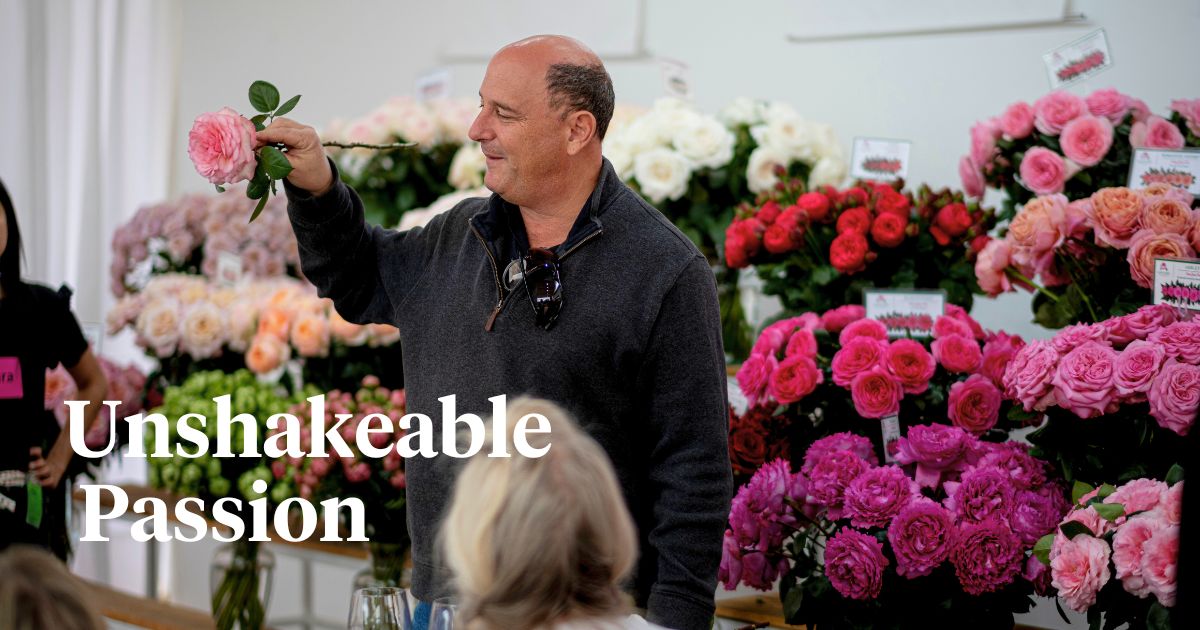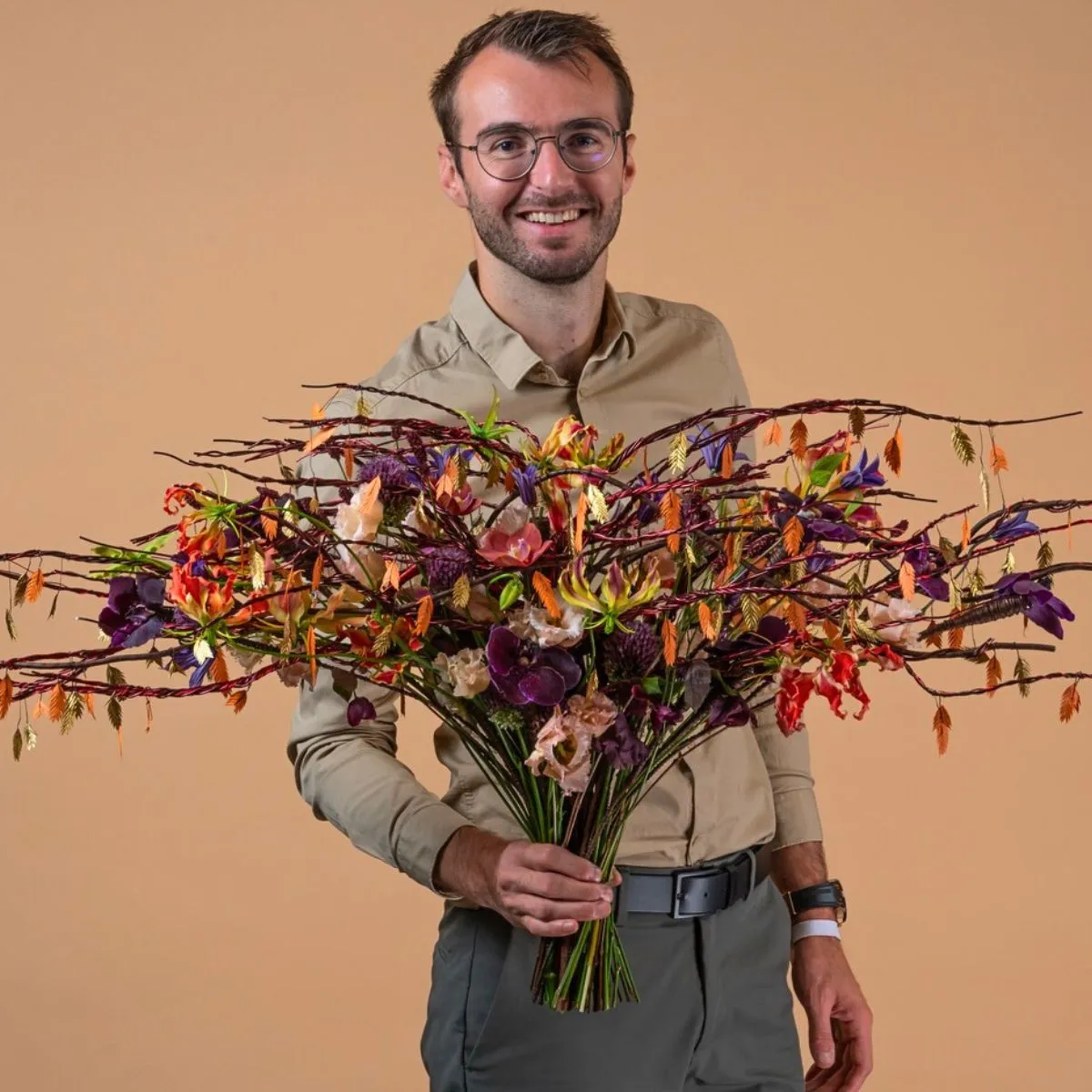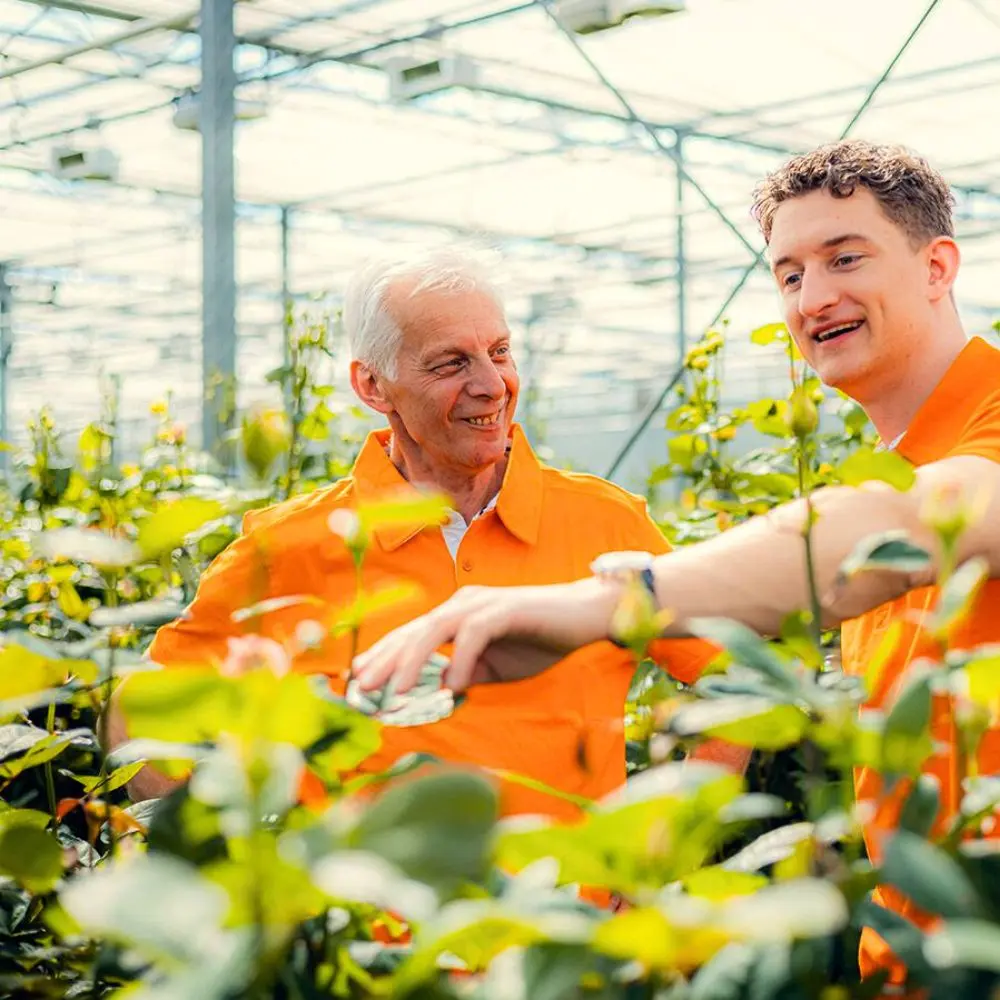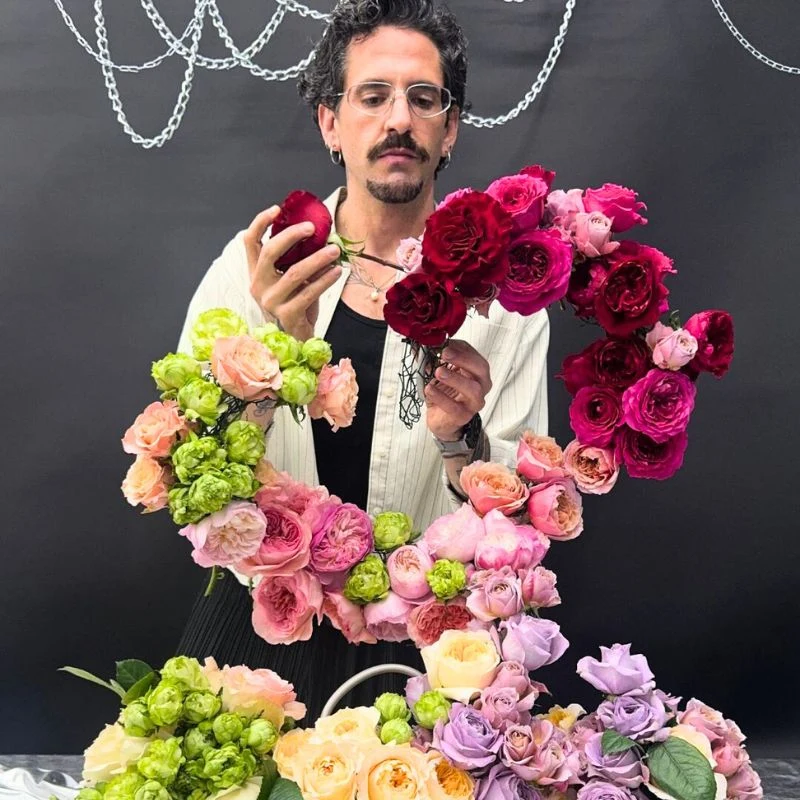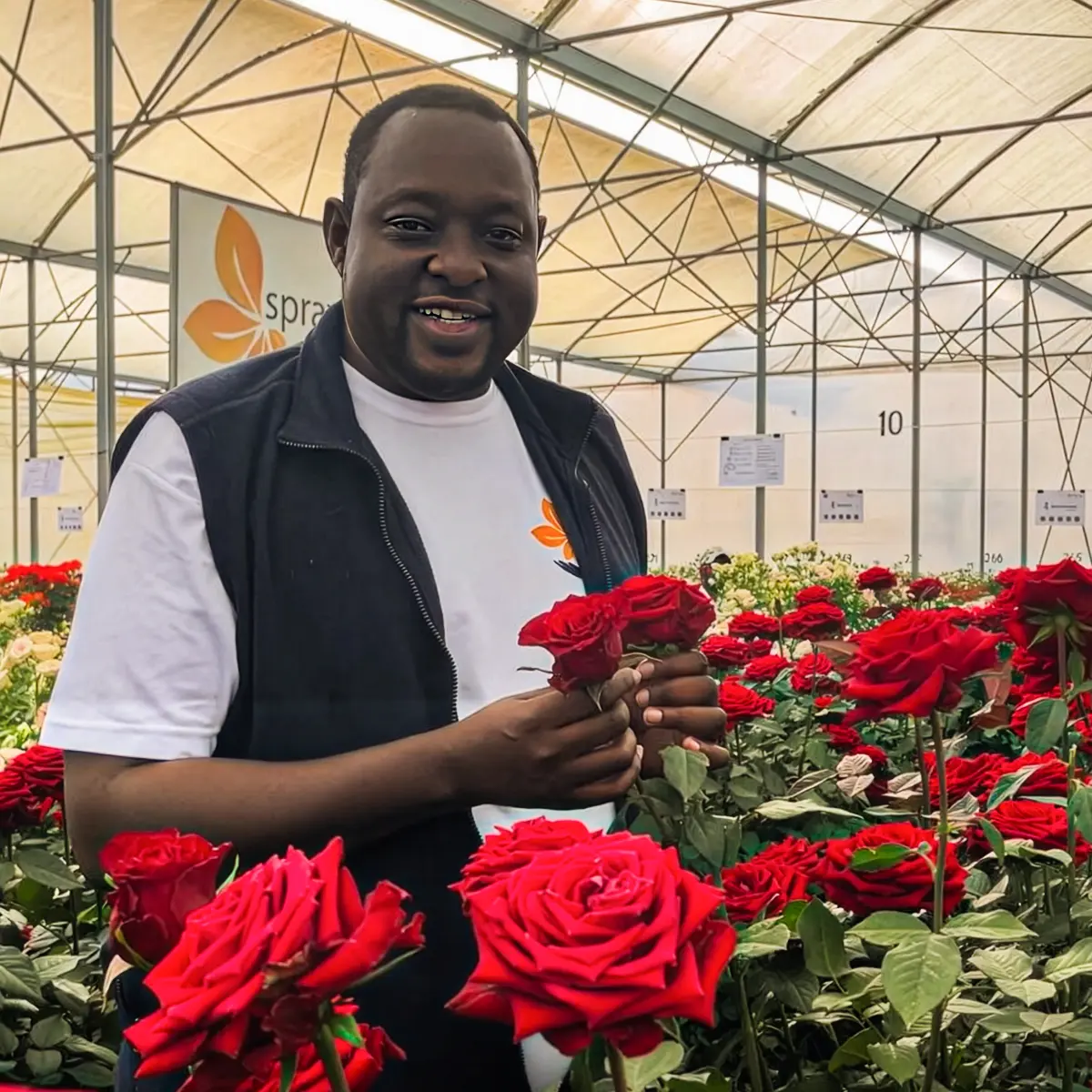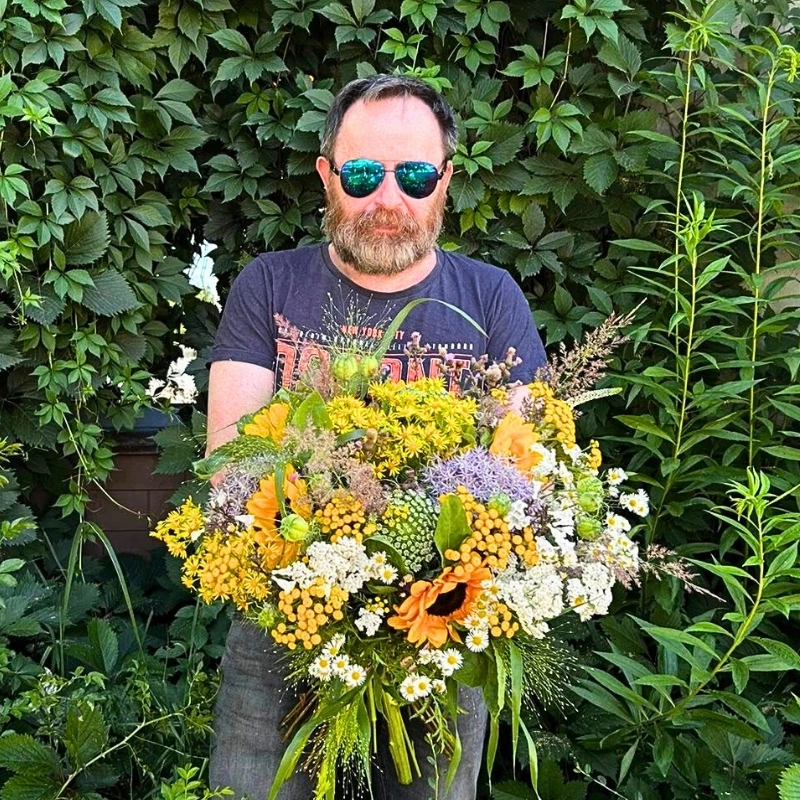'10 Questions to' takes us to the highlands of Bogotá, Colombia, where we meet Joey Azout, the president of Alexandra Farms. Joey has thirty years of expertise within the floral industry, passion, and love for flowers and his team. Joey is proud that for the past three decades, he has been part of his instrumental team comprised of 400 people, who are passionate and committed to producing the world's most beautiful roses.
In the '10 Questions to Joey Azout' below, you learn more about Joey's approach to challenges, role models, and insights regarding technological advancements in the field and how to plug into tech wave, for a profitable venture.
Question 1
For those who don’t know you, who are you and what do you do?
"My name is Joey Azout, and I’m the President of Alexandra Farms, a fresh-cut flower grower in the Savanna of Bogotá, Colombia. I’ve been working in the floral industry for over thirty years. What drove me to where I am now is an unshakeable passion for roses, which I’ve been able to share with everyone who works at Alexandra Farms."
Question 2
What is so special about your job?
"I love my job… And what’s special about it is that along with my team, we get to decide which varieties we grow commercially. That means that we select beauty, and we propagate it. We fill the earth with what we feel are beautiful roses! Hoping, in the process, to make a wedding day or any other event that much more beautiful and meaningful, surrounded by all kinds of colors, textures, and fragrances.
I think that’s what’s special about my job. I would also say that a big part of why I love my job is that I’ve been able to employ around 400 people in Bogotá to give them empowerment and an opportunity to lead the lives they want."
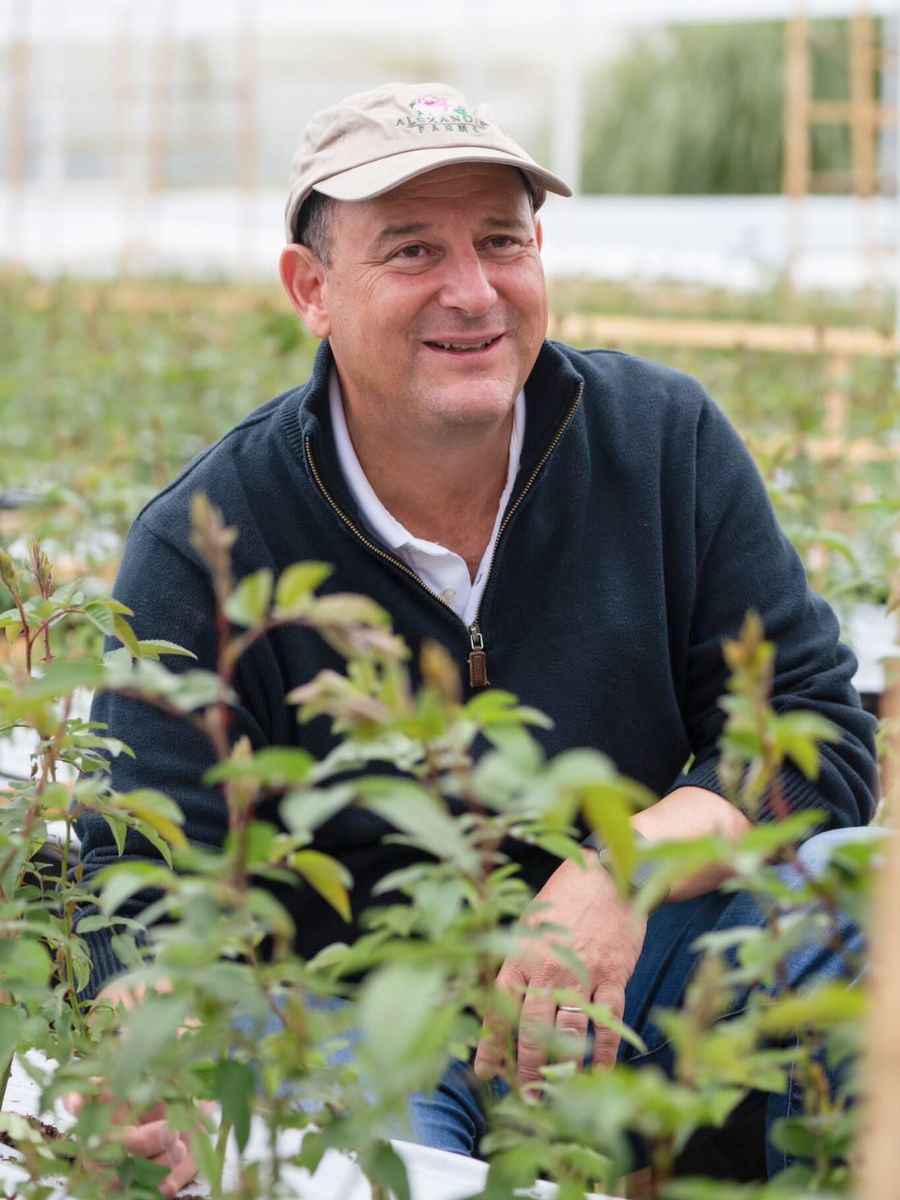
Question 3
Are there any specific challenges or obstacles you’ve faced in your job, and how did you overcome them?
"As a part of the international commerce of agricultural products, we face an abundance of challenges. There are many things, like weather, changes in temperature, and luminosity which we cannot control, and such things are constantly challenging. We are also strongly tied to what’s going on in the world. If there’s a crisis elsewhere, our shipments will take a different route, or go out a different day, and not get to our customers on time.
Our best way to overcome those issues is to cross our fingers tightly and hold on to hope. We can always plan for foreseeable changes in the weather; we’ve developed an irrigation system for our crops, we can regulate light in the greenhouses, and we can plan for alternative shipping methods, as well. But what makes this industry so satisfying to work in is there’s always something new; we are never on autopilot. It keeps us on our toes."
Question 4
What are the threats in the industry, and if so, do you have any solutions for them?
"Threats are primarily weather-related – freezes in the savanna or El Niño; logistics-related – all of the flowers must travel very far, and there’s always an issue somewhere in the world; any limitations on international commerce; and consolidations among companies to become multinationals. We are always looking for ways to work with the ever-evolving industry environment."
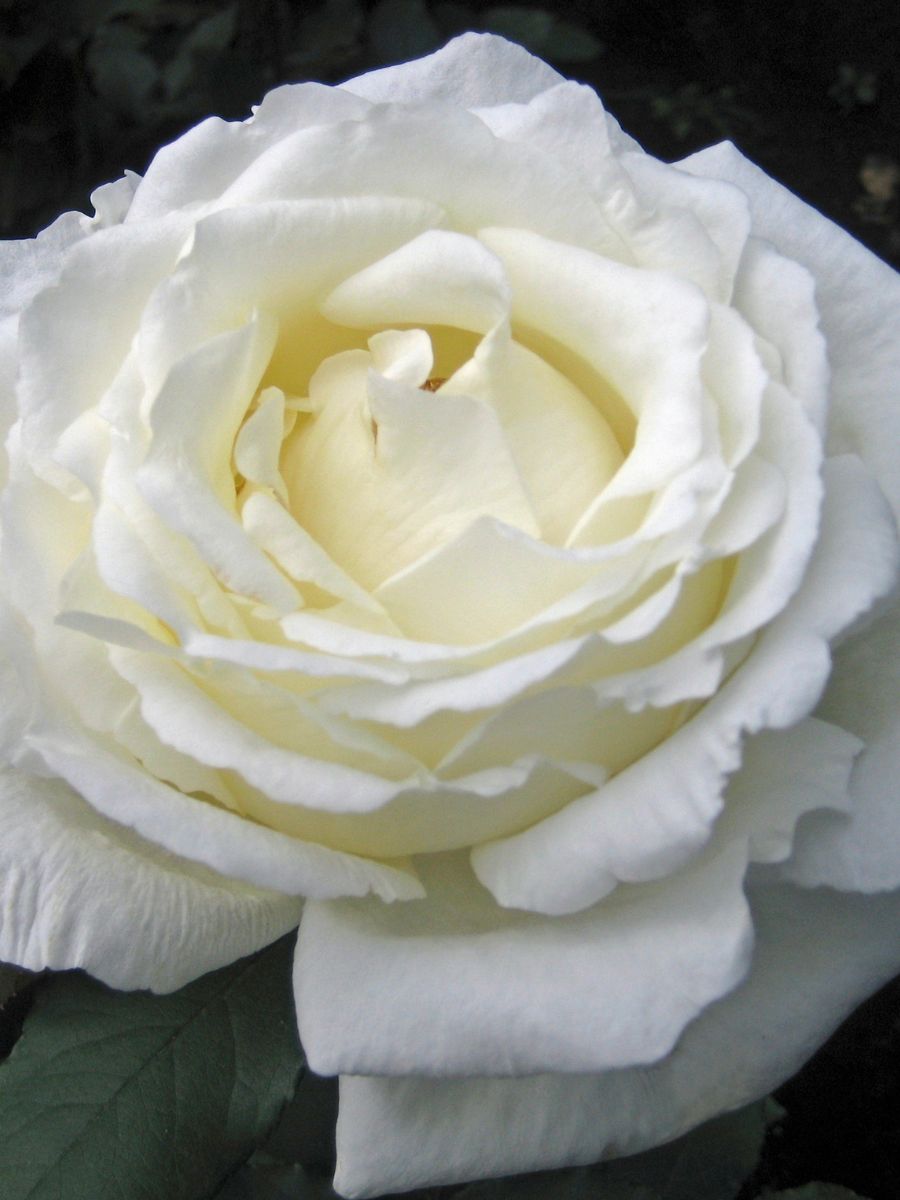
Question 5
How has technology like e-commerce platforms or digital marketing affected your industry, which strategies have you employed to stay competitive?
"From the beginning of my career in flowers, I was told there are always going to be two things: the farm and the end consumer, and everything in between is subject to change. And I’ve seen it happen for over 30 years as the traditional distribution networks have been upended by the internet, overnight shipping, and many other factors. The internet supply of flowers has become increasingly important in the industry despite the supermarkets having dominated the industry in the past 10 years.
The internet and social media have also allowed a rapid change in communications with customers. Now you’re able to talk to designers and florists directly and see what they like and what’s trending in the business; otherwise, we would’ve never thought of sand-colored roses as greatly appealing or marketable, but they have become our third most important coloring in the market. Having access to those opinions, requests, and feedback, changes the way we operate.
In addition, the advances made in the agricultural field have allowed us a reliable system of monitoring and assessing the needs of the plants to prevent plagues or damage. We are still very susceptible to the aforementioned circumstances, being so tied into the weather conditions, but now we can better plan and implement operative processes for it."
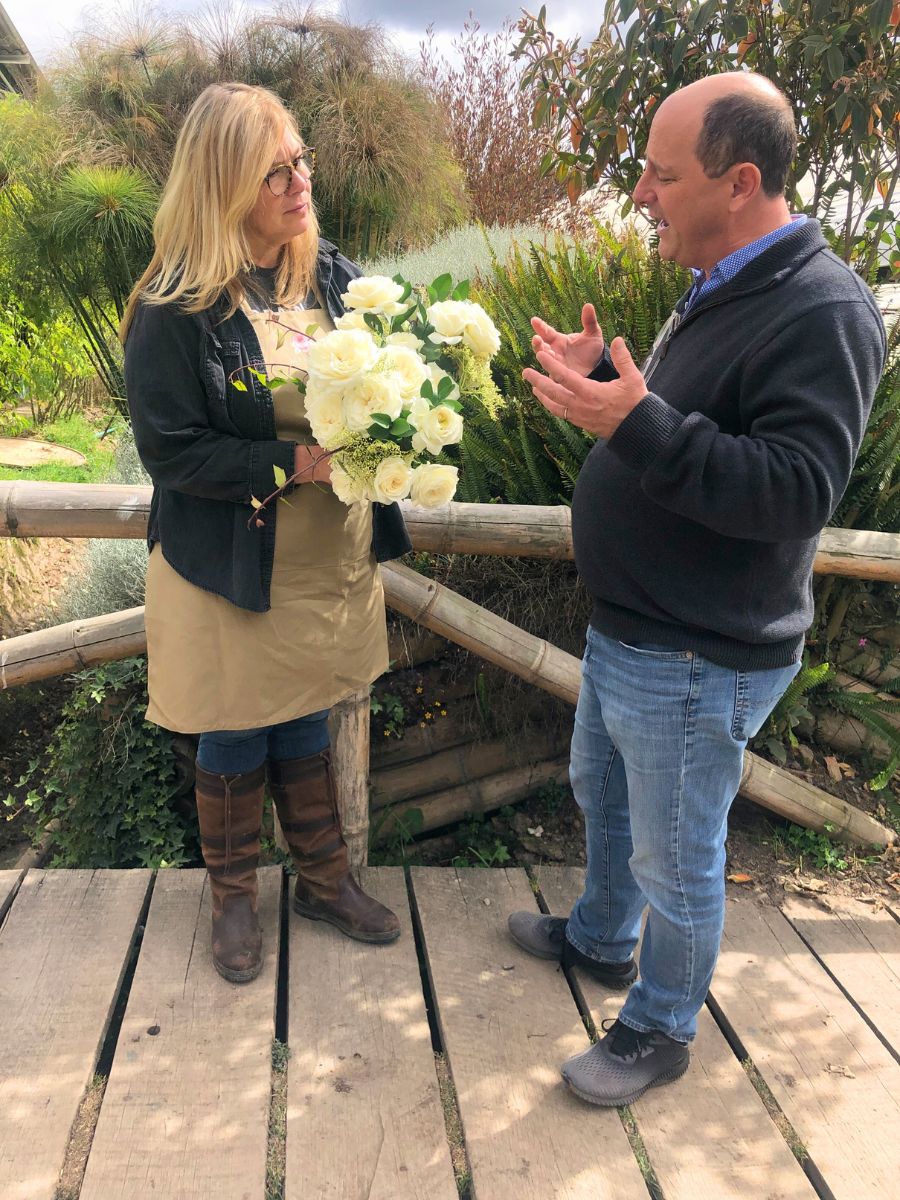
Question 6
Who (in or outside the floral industry) is an inspiring example to you? And Why?
"I think of flower breeders as the motors of innovation and the industry, I look up to Peter Hannaford, who was one of the pioneers in growing flowers in South America for the U.S. and world markets, and he was able to produce and make a market for all kinds of flowers. I think the industry owes him huge gratitude."
Question 7
How do you handle stress or difficult moments in your life?
"I have a high threshold for hard situations. I get stressed over some things - losing my passport, for example. But I find adversity exciting rather than terrifying or stressful. I try to always just breathe deep and never lose sight of what’s important. I try to keep the “big picture” in mind and keep perspective about things."
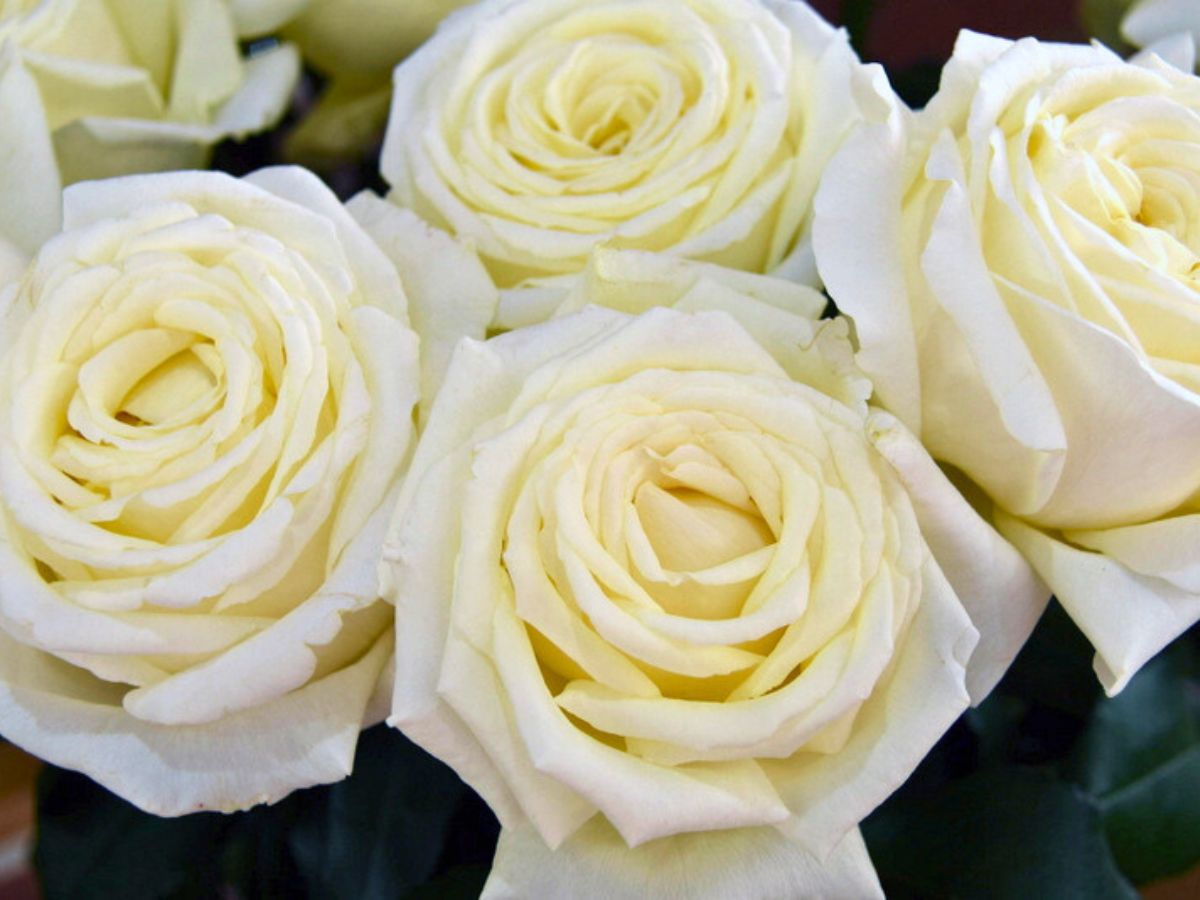
Question 8
What has been the best (floral or non-floral) news for you lately, or of the last year?
"The best news we’ve gotten lately is about the David Austin Roses brand’s reinvigorated dedication to breeding more cut-flower varieties for our market. The pipeline is filled with so many spectacular and never-before-seen roses by this brand. We are proud to be in the process of launching those in the next two or three years!"
.jpg?1706263419217)
Question 9
Which is your favorite flower and why?
"Roses, without question! The Rose Family is huge, and I love them because they are a powerful gift, and they can bring joy to so many people. I can’t choose a favorite variety out of the ones we grow. Roses are like wines! They go well with different things. Some people enjoy red wine with beef and white wine with fish.
It’s the same with roses, something fragrant like Yves Piaget or Rose Vitality for home. If I had a say in my daughter’s wedding, something hot pink like Hettie. If it were just me in the world with one garden rose variety for the rest of my life, it would be a specific variety that’s still in the process of launching. You’ll hear more about this one soon."
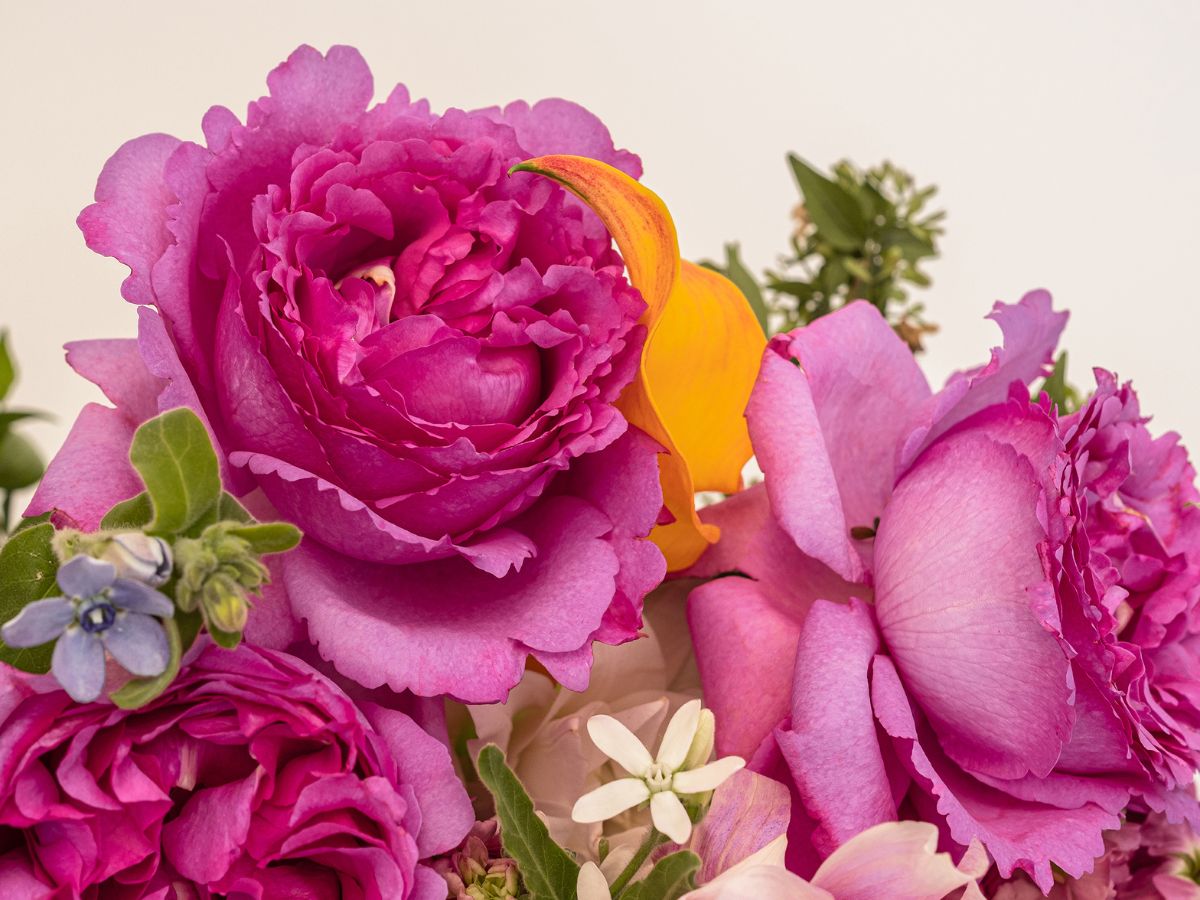
Question 10
What are you doing this weekend?
"This weekend I’ll be walking the rose beds at the farm and selecting new varieties to grow. After that I’ll sit down and review the latest David Austin book of varieties, I’ll scroll through Instagram and see what designers are posting, and I will speak with one of our Japanese breeding partners to see what’s new."
There you have it! 10 questions to Joey Azout, one key takeaway, "Never lose sight of the big picture"; adversities will sure come your way in pursuit of your dreams, but never take your eyes off the big picture as articulated by Joey Azout.
'10 Questions to' is an insightful segment where we interview key personalities within our field, who are making headway in different ways, stay tuned for intriguing personalities to come!
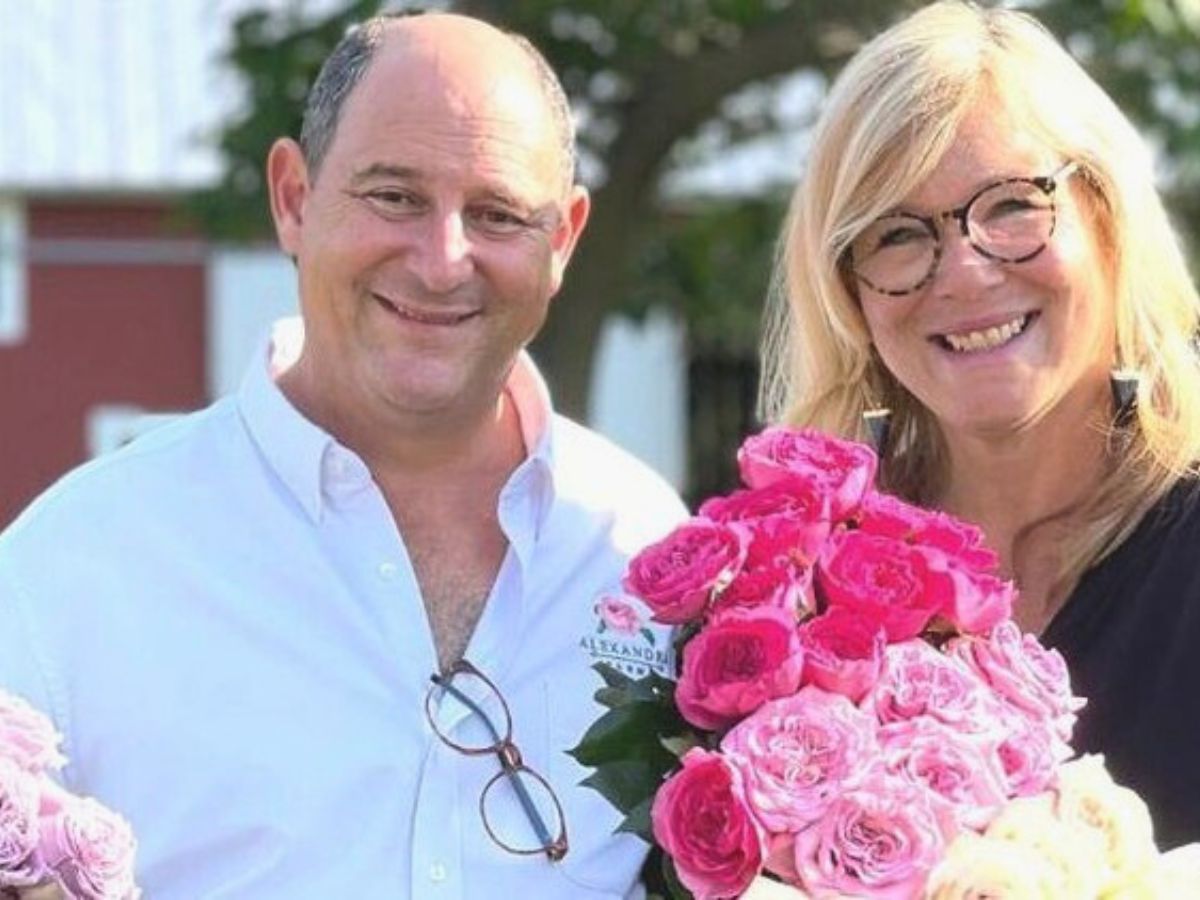
Pictures by @Alexandra Farms.

